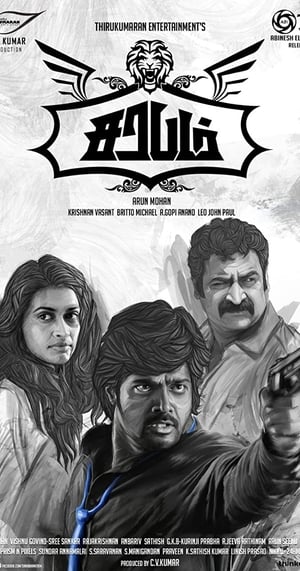
Sarabham
There is new-gen and there is wannabe new-gen and Sarabham belongs in the latter category of filmmaking. It has the elements that we've come to recognize in the new-gen films of the past two years. The producer CV Kumar has become a brand himself by making these films while one of its actors has become a regular feature in such films. The story belongs in the noir genre, there are twists, and the film has an urbane vibe topped with slick cinematography and editing. And yet, the film feels somewhat empty — not hollow but empty, in the sense that its world doesn't really come as a lived-in one. Other than the three major characters, the other supporting characters seem to be there just to fill in the spaces. And the locations too, especially the houses of Vikram and Chandrasekar, seem like those artful settings we see in TV commercials. Everything is so clean, so sterile that there is no mess, even when there is murder, kidnapping and double-crossing involved. Ironically, the only thing that is chaotic is the electronica-influenced score, which needed to be minimalist. The plot is about Vikram ( Naveen Chandra), an ambitious young architect, who is dejected when his wealthy client Chandrasekar ( Naren) rejects his plan. He wants revenge but comes across Chandrasekar's daughter, Sruthi (Salony), who says that she's trying to flee from the country. Vikram confides in her of his desire to get rich quick and tells her that he will do any crime, if it seems that he will never get caught (while in the background we see this caption on his wall: I'm the architect of my own disaster). So, the two hatch a plan — he tells Chandrasekar that he has kidnapped his daughter and demands a ransom, which they will later split evenly. Everything goes according to plan but it is only later that Vikram realizes that nothing is what it seems to be. For a crime thriller, Sarabham is largely tension free. We are only mildly curious when the unexpected happens and there are too many twists that we stop caring after a point. Added to that, we never feel empathetic towards either of the leads, which stops us from being concerned. The actors, too, seem miscast — Naveen is dull while the Jolie-like Salony, despite capturing the femme fatale essence of the character in some scenes, is hampered by not knowing the language.
